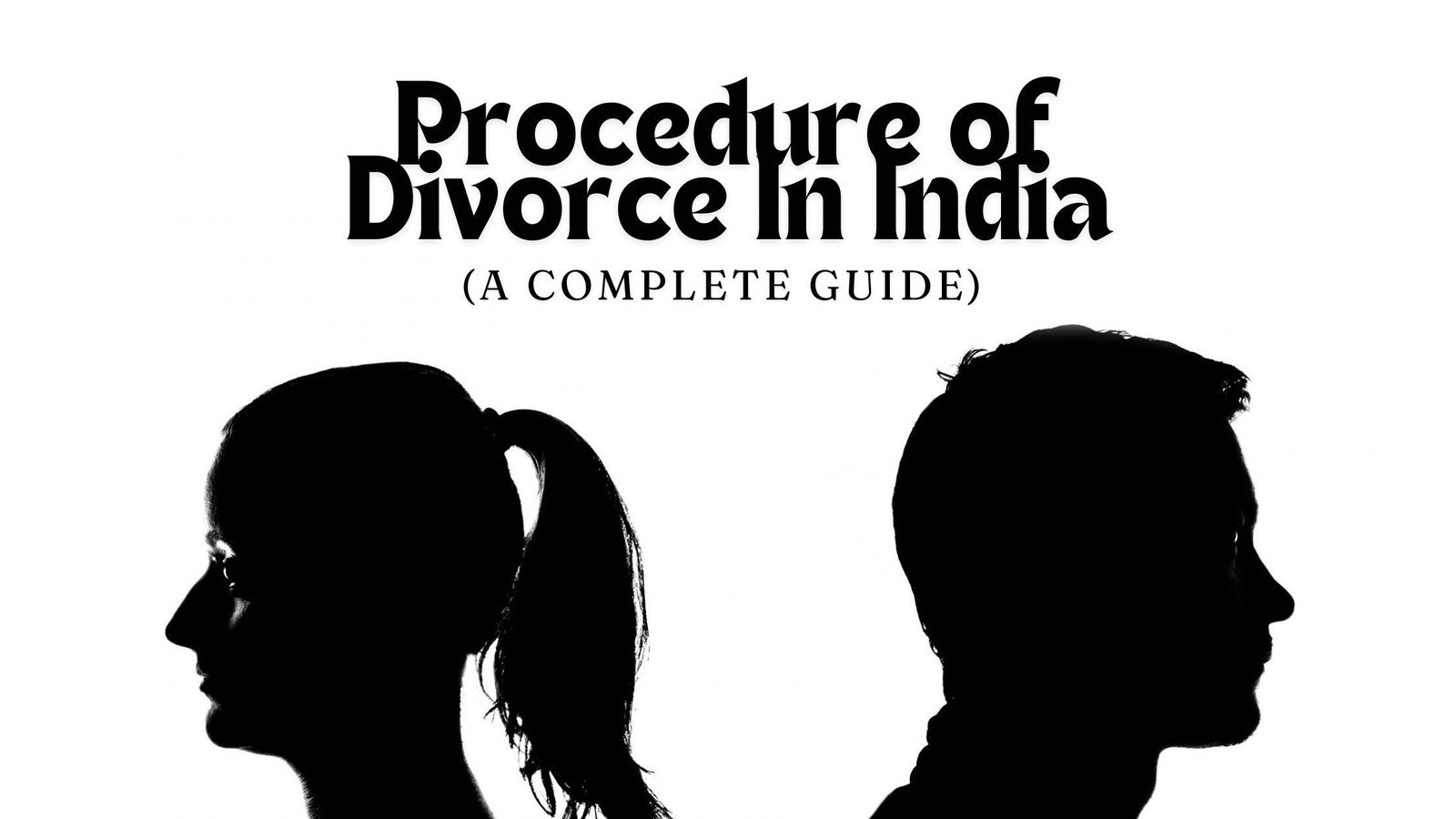
What Is The Procedure For Divorce In India?
Divorce is a challenging and emotional process for anyone, and navigating the legal system can add to the stress. Thus, understanding the divorce procedure in India can make the process less daunting. This article will help you out with the divorce procedure in India, focusing on the legal aspects while also considering the emotional impact it can have on the individuals involved.
How Do You File for Divorce in India?
It all begins with filing a petition. Now, one must understand that there are two different types of divorce. Go on reading to find out.
- Mutual Consent Divorce: This is the more straightforward of the two. Both parties agree to the divorce, and they jointly file a petition in the family court. The couple needs to be living separately for at least one year before filing. The petition, in this case, includes the terms of the divorce, such as custody of children, alimony, and the division of property. The court then records the statements of both parties and after a six-month cooling-off period, the court finalizes the divorce if both parties still consent.
- Contested Divorce: This is more complex and time-consuming because one party does not agree to the divorce. The spouse who wants divorce must file a petition citing specific grounds, such as adultery, cruelty, desertion, conversion to another religion, mental disorder, or communicable diseases. The other spouse has the right to contest the grounds, and the court will then hear both sides before making a decision.
What Are the Grounds for Filing a Divorce in India?
When it comes to contested divorces, Indian law specifies several grounds on which a divorce can be filed. Understanding these grounds is crucial because they form the basis of the legal proceedings.
- Adultery: If one spouse has had a sexual relationship with someone else, the other spouse can file for divorce on grounds of adultery. It requires proof of the affair, which can be challenging to gather.
- Cruelty: Mental or physical cruelty is another common ground for divorce. This could include verbal abuse, physical violence, or other forms of harassment. The aggrieved party must provide evidence of cruelty, which the court will examine.
- Desertion: If one spouse cheats or leaves another, the abandoned spouse can file for divorce. Desertion implies that the spouse left without any reasonable cause and without the consent of the other spouse.
- Conversion: If there is a religious change, the spouse can file for divorce. This ground is valid because religious differences can significantly impact marriage.
- Mental Disorder: If a spouse is suffering from a severe mental disorder or insanity, the other spouse can seek a divorce. However, this ground requires medical proof and is subject to the court’s scrutiny.
- Communicable Diseases: If a spouse has a communicable disease like HIV/AIDS, leprosy, or venereal disease, the other spouse can file for divorce. Medical records are required to support this claim.
Role of Mediation in the Divorce Process
Mediation plays a huge role in the divorce process in India, especially in cases of contested divorce. The courts often encourage couples to seek mediation before proceeding with the divorce case.
The primary goal is to sort disputes amicably and avoid the lengthy and costly court process.
- How Mediation Works: A neutral person, called a mediator, helps the spouses talk and agree on the terms of their divorce. The mediator guides them in deciding things like how to divide their property, who will take care of the children, and any support payments. If they reach an agreement, they can move forward with a mutual consent divorce.
- Benefits of Mediation: Mediation offers several advantages, including reduced legal costs, quicker resolution, and a more amicable relationship post-divorce. It allows both parties to have control over the terms of their separation rather than leaving these decisions to the court.
- Court’s Involvement: If mediation fails and the couple cannot reach an agreement, the case will go back to court, where a judge will make the final decisions. The court may also appoint a mediator if it deems it necessary during the divorce proceedings.
How Long Does the Divorce Process Take in India?
The duration of the divorce process in India depends on many things. Understanding these factors can help manage expectations and prepare for the process ahead.
- Mutual Consent Divorce Timeline: In the case of mutual consent divorce, the process can take around six to eight months. After filing the petition, there is a mandatory six-month cooling-off period. However, in some cases, the Supreme Court of India has waived this period if the couple has been living apart for more than 18 months and both parties are eager to finalize the divorce.
- Contested Divorce Timeline: Contested divorces can take much longer, often between two to five years or even more. The process is lengthy because it involves multiple hearings, examination of evidence, cross-examinations, and the possibility of appeals. The duration also depends on the complexity of the case and the backlog of cases in the family court.
- Factors Affecting Duration: The divorce process can be prolonged due to various factors, such as delays in serving notices, non-cooperation from one party, or the involvement of multiple legal issues like property disputes or child custody battles. Additionally, the availability and schedule of the family court also play a role in the overall timeline.
Bottom Line
Ultimately, divorce can be emotionally and legally challenging. Understanding the procedure for divorce in India is crucial for navigating the process effectively.
Additionally, it’s important to seek professional legal advice, which you can get from Innerwork Advisors, who are the best legal service providers in Kolkata, to guide you through the process and ensure that your rights are protected. Remember, while divorce marks the end of a marriage, it also opens the door to new beginnings, and with the right support, you can move forward with confidence.
Also Read: Natural Guardian Legalities in India: Understanding Rights and Responsibilities






